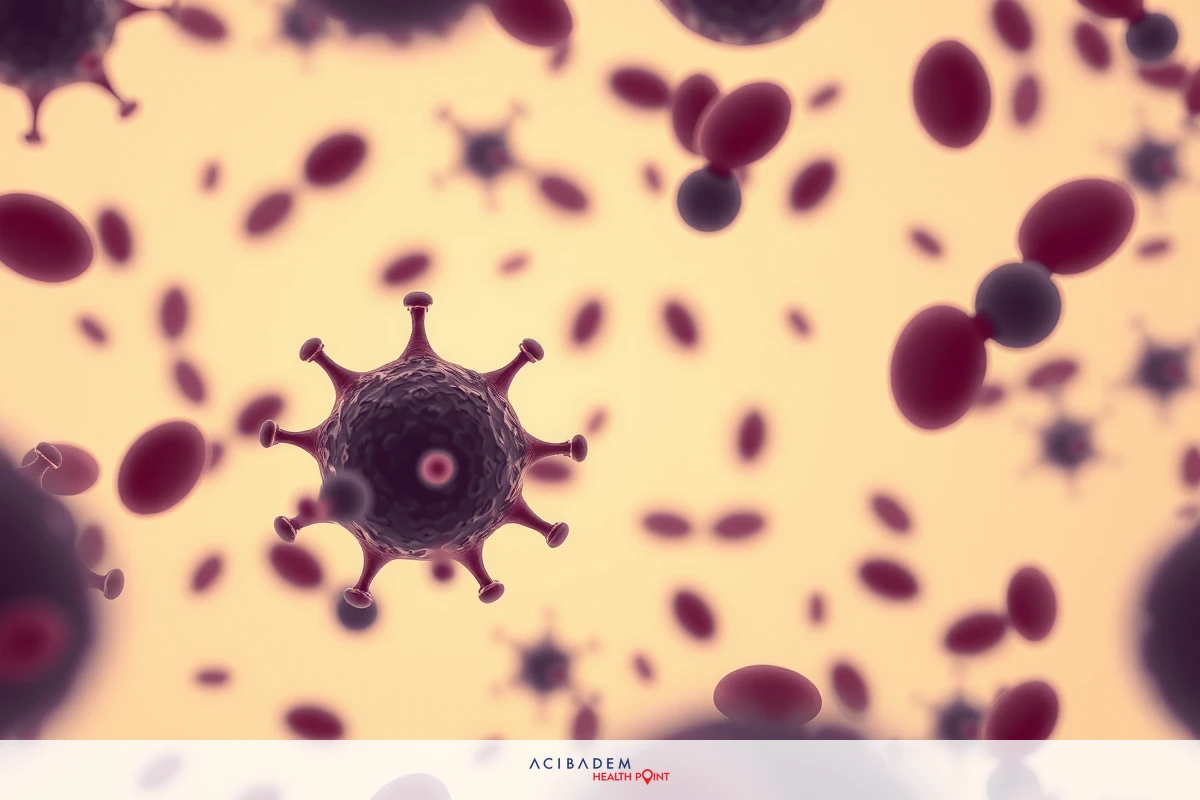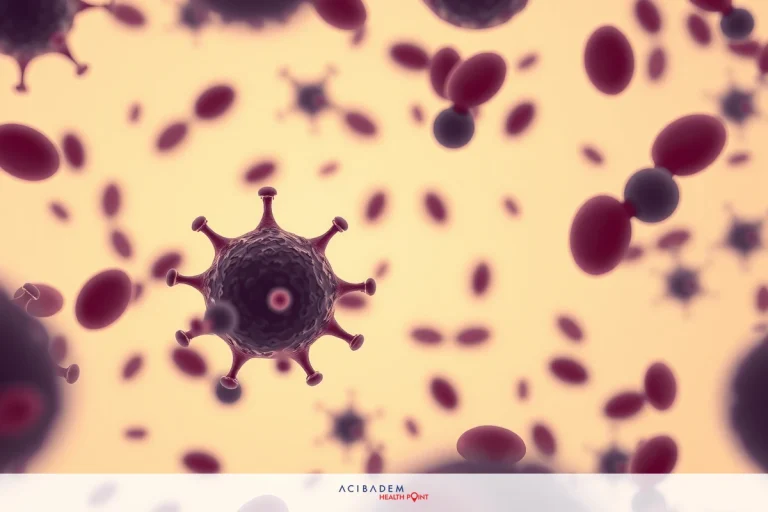Tumor-Infiltrating Lymphocytes Colorectal Cancer Have you ever wondered how our body’s immune system fights cancer? Tumor-infiltrating lymphocytes, or TILs, play a key role in this battle. They are special cells that can recognize and attack cancer cells. Their presence in tumors often means the body is working hard to fight off the disease.
Colorectal cancer remains a big problem for many people worldwide. Luckily scientists have found ways to use TILs to help treat it. By boosting these cells doctors hope to improve patient outcomes.
The idea of using our own immune system sounds promising. But there are still questions about how well it works and what challenges remain. Let’s explore this fascinating topic together.
What are Tumor-Infiltrating Lymphocytes?
Tumor-infiltrating lymphocytes, or TILs, are a type of white blood cell. They come from our immune system and move into tumors. These cells have the job to fight cancer cells within the tumor itself. TILs can recognize cancer as something harmful and try to destroy it. This is part of the body’s natural defense against diseases like colorectal cancer.
TILs work by identifying proteins on cancer cells. Once they find these proteins they attack them directly. This process helps slow down or even stop the growth of tumors in some cases. The presence of many TILs often means a stronger immune response against the tumor.
In colorectal cancer treatment doctors study how well TILs perform their tasks. They look at ways to boost these cells so they can fight better against cancer cells in patients’ bodies. Some treatments involve taking out TILs from a patient’s body and growing more of them in a lab before putting them back into the patient’s body.
Research shows that enhancing TIL activity could lead to better outcomes for patients with colorectal cancer. Scientists keep looking for new methods to make use of these powerful cells more effectively in fighting this disease. While challenges still exist there is hope that increased understanding will bring improved therapies using tumor-infiltrating lymphocytes soon.
How TILs Affect Colorectal Cancer
Tumor-infiltrating lymphocytes, or TILs, play a crucial role in colorectal cancer. These cells enter tumors and fight cancer from the inside. Their presence often signals an active immune response against the tumor. This means that they can help slow down cancer progression.
TILs work by attacking specific proteins on cancer cells. When they find these targets they try to kill the harmful cells. This action helps reduce tumor size over time. However not all tumors have high levels of TIL activity.
In some cases doctors use treatments to boost TIL numbers in patients with colorectal cancer. These boosted TILs aim to enhance the body’s natural fight against the disease. Such treatments are still being studied for their effectiveness.
The impact of TILs varies from patient to patient. Some people respond well while others see little change in their condition. Researchers continue to explore why this happens and how to improve outcomes for everyone using TIL-based therapies.
Understanding how tumor-infiltrating lymphocytes affect colorectal cancer is key for future treatment plans. The goal is always better results and fewer side effects for patients facing this tough diagnosis.

Benefits Of TIL Therapy
TIL therapy offers promising advantages for treating colorectal cancer. One major benefit is that it uses the body’s own immune system to fight the disease. Tumor-infiltrating lymphocytes, or TILs, are collected from the patient’s tumor and then grown in large numbers in a lab. This process aims to create a strong army of cells ready to battle cancer.
Another key advantage is its targeted approach. Unlike some other treatments TIL therapy focuses specifically on attacking cancer cells. This means there may be fewer side effects compared to traditional methods like chemotherapy or radiation. Patients often find this aspect appealing as it improves their quality of life during treatment.
Moreover TIL therapy can lead to long-lasting responses in some patients with colorectal cancer. The enhanced immune response provided by these boosted cells can help keep tumors under control for longer periods. This could mean better outcomes and extended survival rates for many individuals facing this tough diagnosis.
Lastly ongoing research continues to refine and improve TIL therapy techniques. As scientists learn more about how these cells work against colorectal cancer they develop new ways to make treatments even more effective. The future looks bright as advancements bring hope for those affected by this challenging disease.
Current Research On TILs
Recent studies on tumor-infiltrating lymphocytes (TILs) have shown promising results in colorectal cancer treatment. Researchers are exploring how these cells can be used more effectively. One key focus is boosting the immune response against cancer cells. This involves growing large amounts of TILs from a patient’s tumor and then reintroducing them into the body.
Some findings indicate that certain types of TILs are more effective than others. Scientists are working to identify which cells work best for different patients with colorectal cancer. This personalized approach aims to improve treatment outcomes by tailoring therapies to individual needs.
Another area of research looks at combining TIL therapy with other treatments such as immunotherapy or chemotherapy. Early results suggest that this combination could enhance the overall effectiveness of cancer treatment. These combined approaches may offer new hope for patients who do not respond well to standard therapies alone.
Trials continue to test and refine various aspects of TIL-based treatments. From lab experiments to clinical trials involving real patients each study adds valuable knowledge about how these powerful cells operate against colorectal cancer. The future holds great potential as scientists uncover new ways to harness the full power of tumor-infiltrating lymphocytes in the fight against this challenging disease.
Challenges In TIL Treatment
TIL therapy offers promise but comes with its own set of challenges. One major obstacle is the time it takes to grow enough tumor-infiltrating lymphocytes for treatment. This process can be long and complex requiring specialized labs and equipment. Delays can impact how quickly patients receive their cancer treatment.
Another challenge is not all tumors have high levels of TILs to begin with. In some cases there may not be enough cells available to collect and grow. This limits the effectiveness of the therapy for certain colorectal
cancer patients.
Additionally, once TILs are reintroduced into the body, they don’t always work as planned. The immune response may still be weak or inconsistent against cancer cells. Researchers are working hard to understand why this happens and find ways to improve outcomes.
Cost also poses a significant challenge in TIL therapy. Advanced lab work and personalized treatments come with a high price tag. Many patients may find it difficult to access these costly therapies making them inaccessible for many who could benefit from them.
Despite these obstacles ongoing research aims to overcome these issues one step at a time. With each new study scientists learn more about how to make TIL treatments safer and more effective for everyone battling colorectal cancer.
Frequently Asked Questions
Q: What are tumor-infiltrating lymphocytes (TILs)?
A: Tumor-infiltrating lymphocytes are white blood cells that enter tumors to fight cancer. They come from the body’s immune system.
Q: How do TILs help in colorectal cancer treatment?
A: TILs target and attack cancer cells within the tumor. This can slow down or stop the growth of colorectal cancer.
Q: Are there any side effects of TIL therapy?
A: While TIL therapy may have fewer side effects compared to traditional treatments some patients may still experience mild to moderate issues like fatigue or fever.








